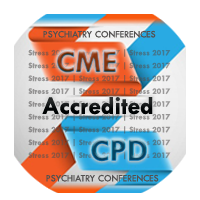
Belinda Neil
Author - Under Siege, Australia
Title: A Teaser Exercise to Prompt Neurogenesis and restore the stressed mind
Biography
Biography: Belinda Neil
Abstract
One of the goals of therapy is to reduce symptoms and provide a better quality of life for the patient suffering post-traumatic stress disorder, anxiety, or depression. Post-traumatic stress disorder occurs after traumatic events exposure. PTSD is characterized by symptoms of re-experiencing such as intrusive memories and dreams: avoidance including avoiding thoughts, feelings and places associated with the traumatic event: numbing or feeling detached from others; and hyperarousal including poor sleep, irritability and hypervigilance. Th ere are now many studies that show a growing awareness that the cerebellum plays a higher role in cognitive functions such as sensory processing, attention, verbal working memory, and emotion. Recent studies have shown that the cerebellar fluid reduction is associated with mood, anxiety and PTSD symptoms and that there is a possible role of the cerebellum in the vulnerability to experience negative eff ect. Th is is the second study involving participants diagnosed with PTSD undertaking a novel physical exercise designed to stimulate cerebellar function. Those participants who regularly performed the exercise advised of a significant reduction in their PTSD symptoms. Th e participants advised of improved sleep, a positive change in themselves, a reduction in negative emotions, improvement in memory and a reduction in intrusive memories. Both studies clearly showed an overall improvement in participants. Besides providing the patient with improved quality of life, it is stated that the use of putative cerebellum exercises may assist the patient in early stages of treatment, not only with their concentration but more importantly allowing them to participate in CBT or exposure therapy
rather than dissociating.

